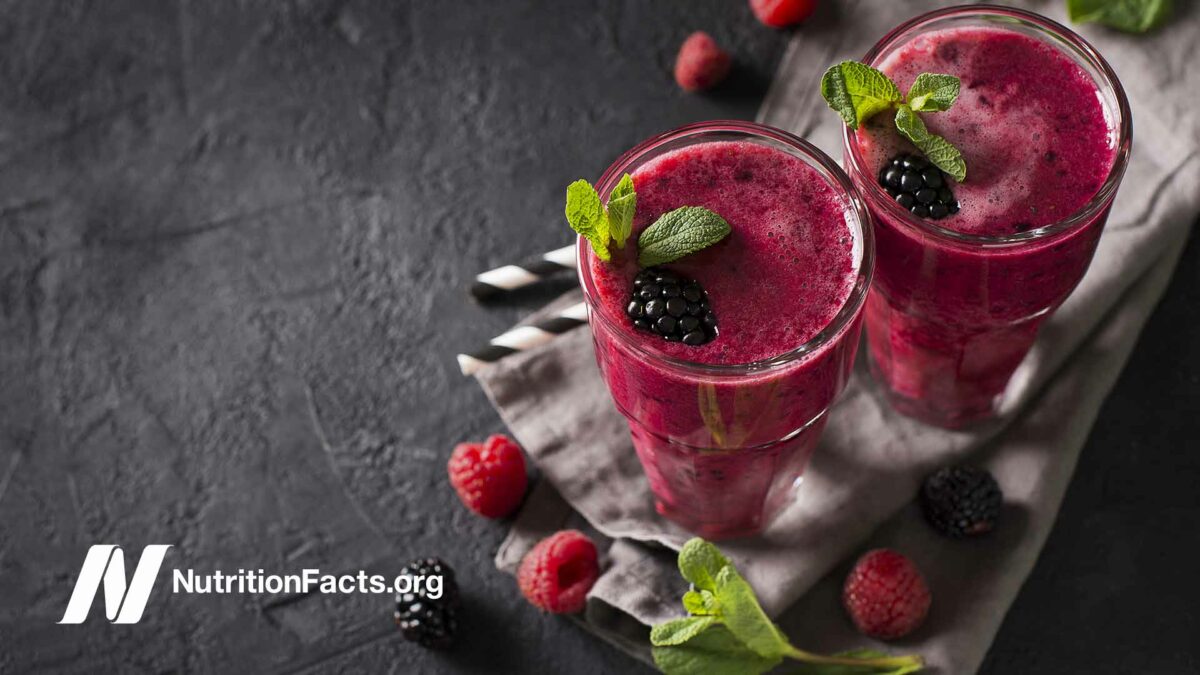
Artery Function
Comparing the artery function of those who don’t eat meat to those who do, the healthy ability of arteries to dilate normally and let more blood flow is four times better among non-meat eaters, and, apparently, the longer, the better. The degree of superior artery function correlated with the number of years eating meat-free. Instead of their artery function worsening over time as they aged, it was getting better the longer they ate more healthfully.
Researchers have found that those eating plant-based also have improved blood “rheology,” meaning fluidity or flowability, which may play a role in their cardiovascular protection, and switching people to a plant-based diet can improve rheology measurements within just three to six weeks. Also, if anything, there is a lower stroke risk among those eating more plant-based.
In contrast, low-carb diets have been found to worsen heart disease and impair arterial function. Within just three hours of eating a meal rich in saturated fat, arterial function is significantly impaired. Artery function also worsens on a ketogenic diet, even after about a dozen pounds of weight loss, and this appears to be the case with low-carb diets in general.
What about salt? A single typically-salted meal can significantly suppress artery function within 30 minutes by suppressing a powerhouse antioxidant enzyme in our body called superoxide dismutase, which can ordinarily detoxify a million free radicals per second.
Certain plants have been shown to improve our artery function and perhaps even reverse arterial disease, including a variety of legumes, tomatoes, and garlic.
For substantiation of any statements of fact from the peer-reviewed medical literature, please see the associated videos below.
Image Credit: Pixabay
Popular Videos for Artery Function


Exercising to Protect Your Arteries from Fast Food
There is a window of time in which sufficient physical activity can help mediate some...
Eggs and Arterial Function
Even studies funded by the American Egg Board show our arteries benefit from not eating...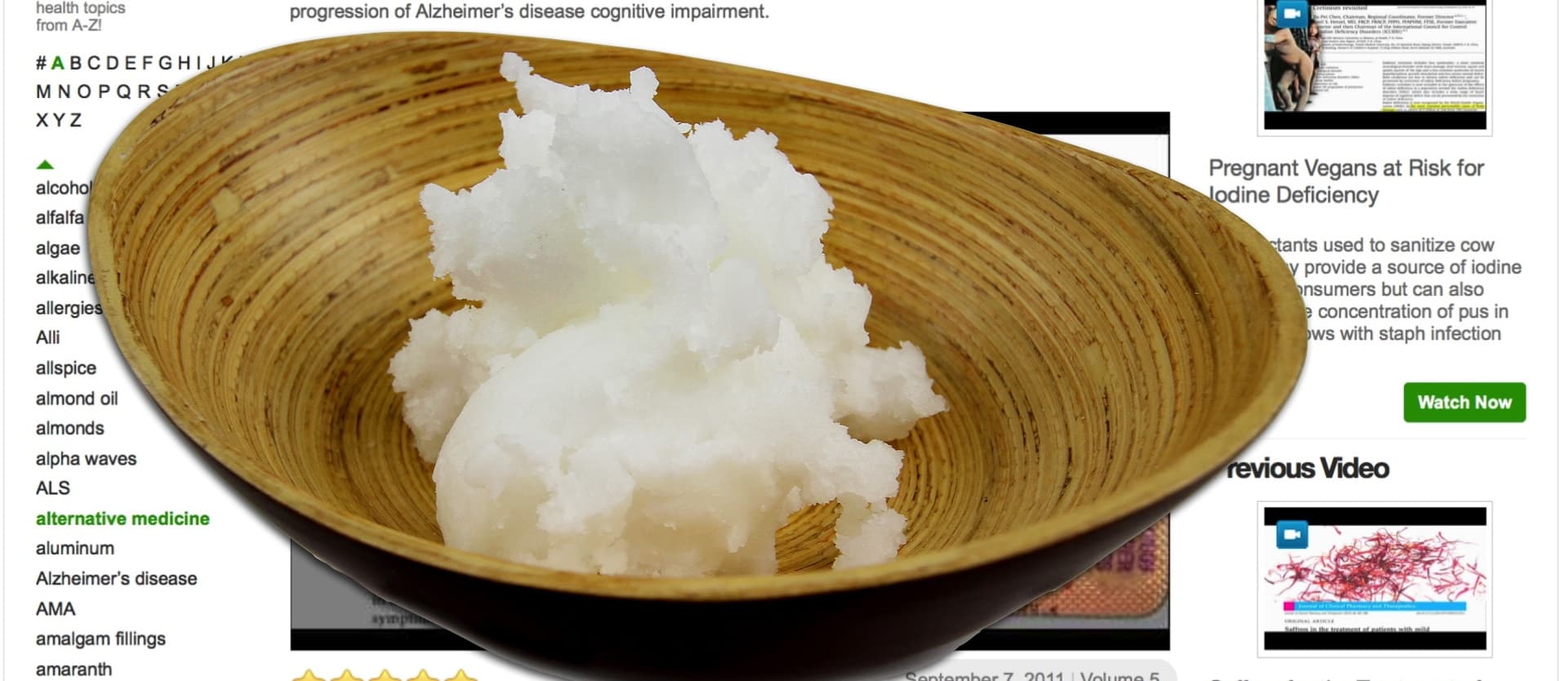
Does Coconut Oil Clog Arteries?
Sellers of coconut oil use a beef industry tactic to downplay the risks associated with...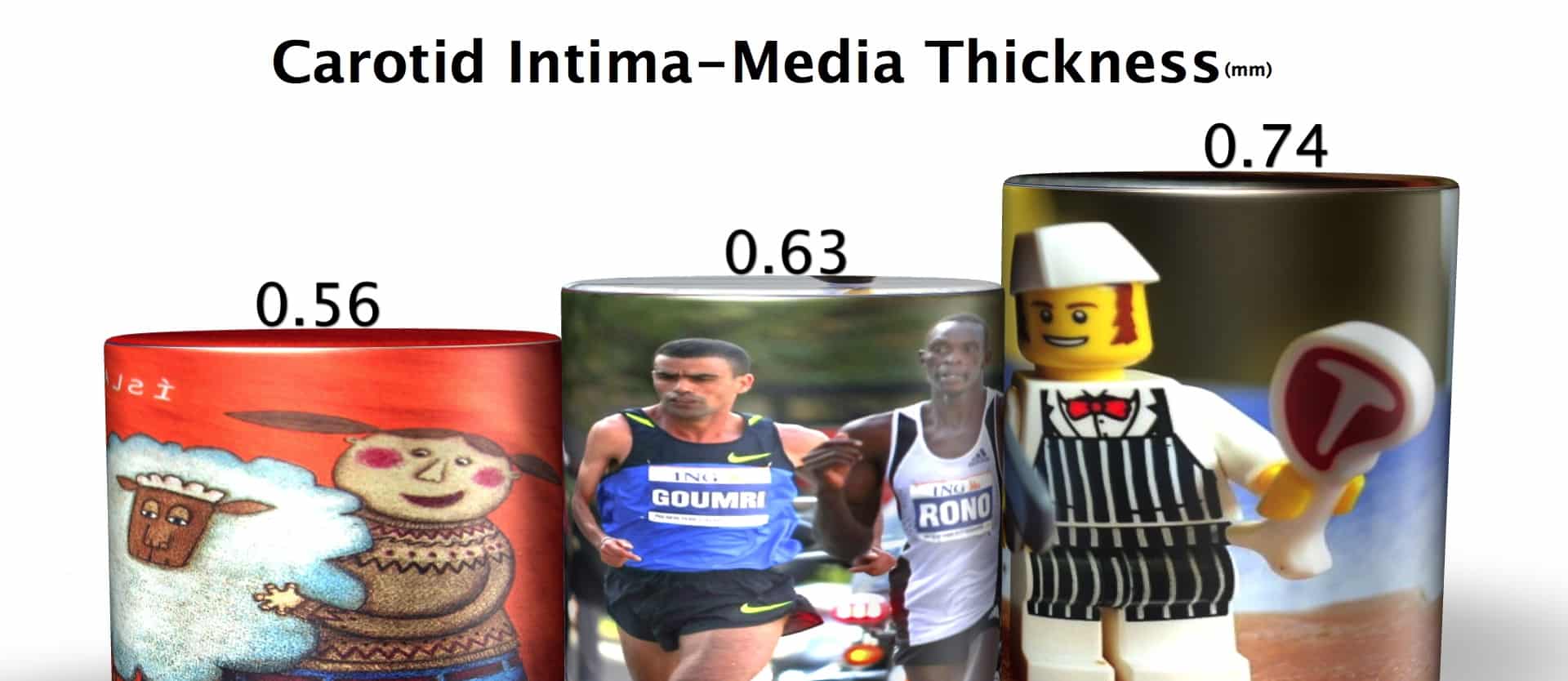
Arteries of Vegans vs. Runners
The carotid arteries of those eating plant-based diets appear healthier than even those just as...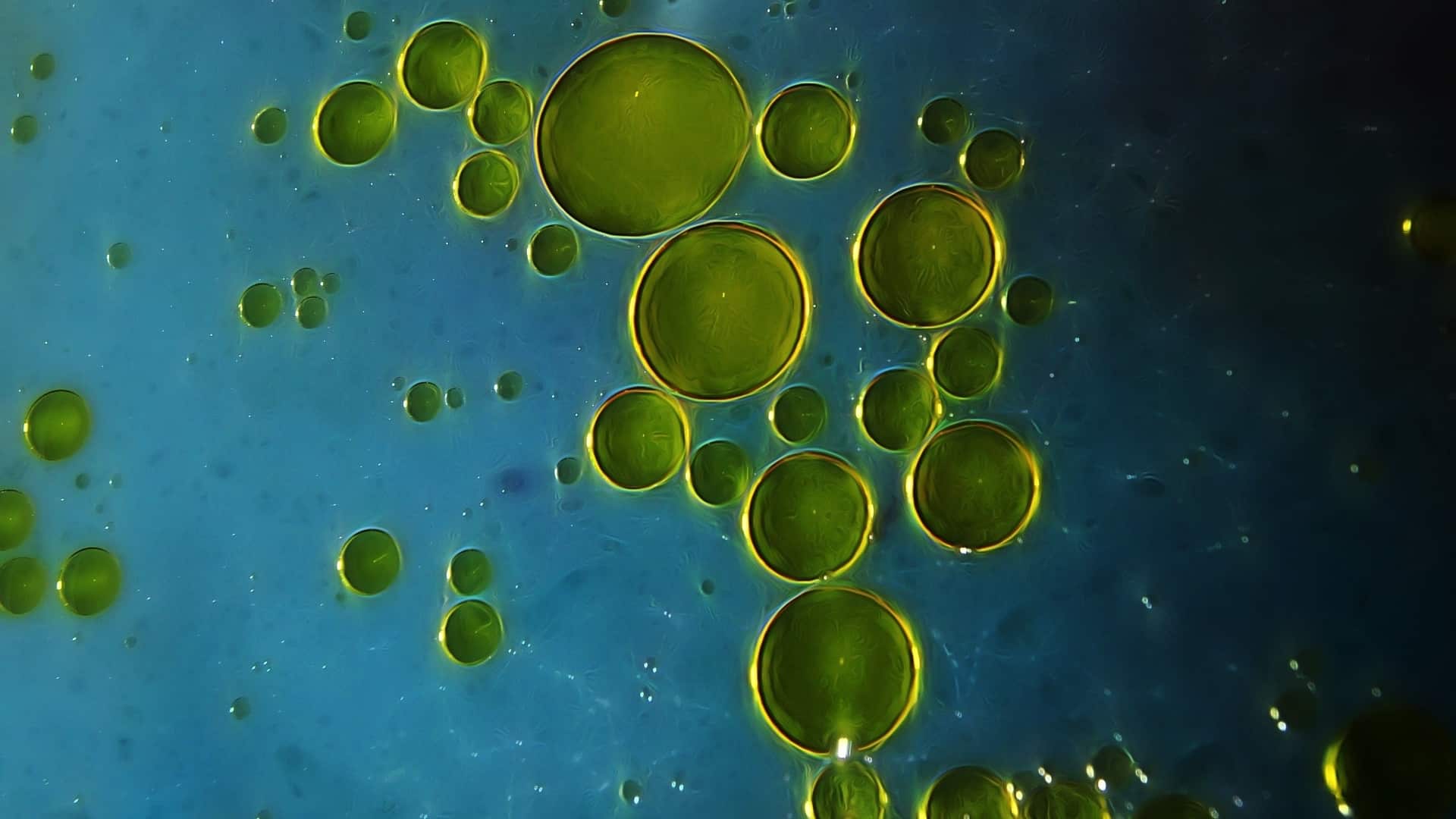
Olive Oil and Artery Function
Does extra virgin olive oil have the same adverse effect on arterial function as refined...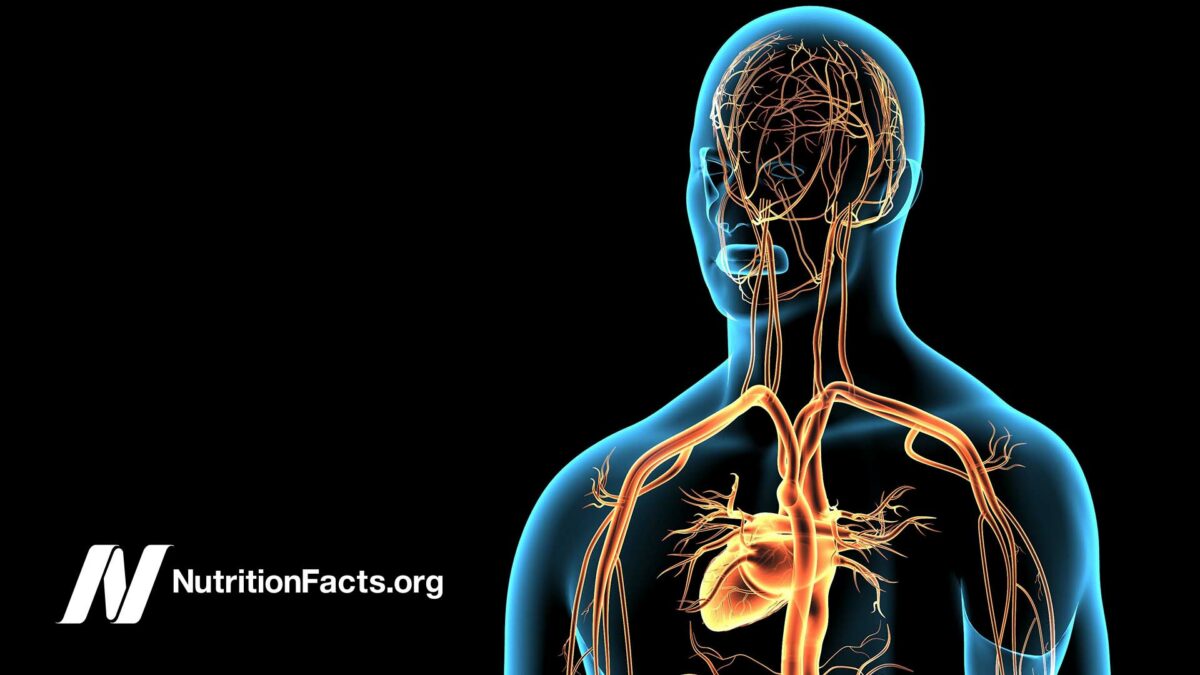
Fatty Meals May Impair Artery Function
We finally discovered why a single high-fat meal can cause angina chest pain.
Dark Chocolate and Artery Function
What do studies not funded by the chocolate industry show about the effect of cocoa...
Coffee and Artery Function
The new dietary guidelines for beverages recommend tea and coffee second only to water in...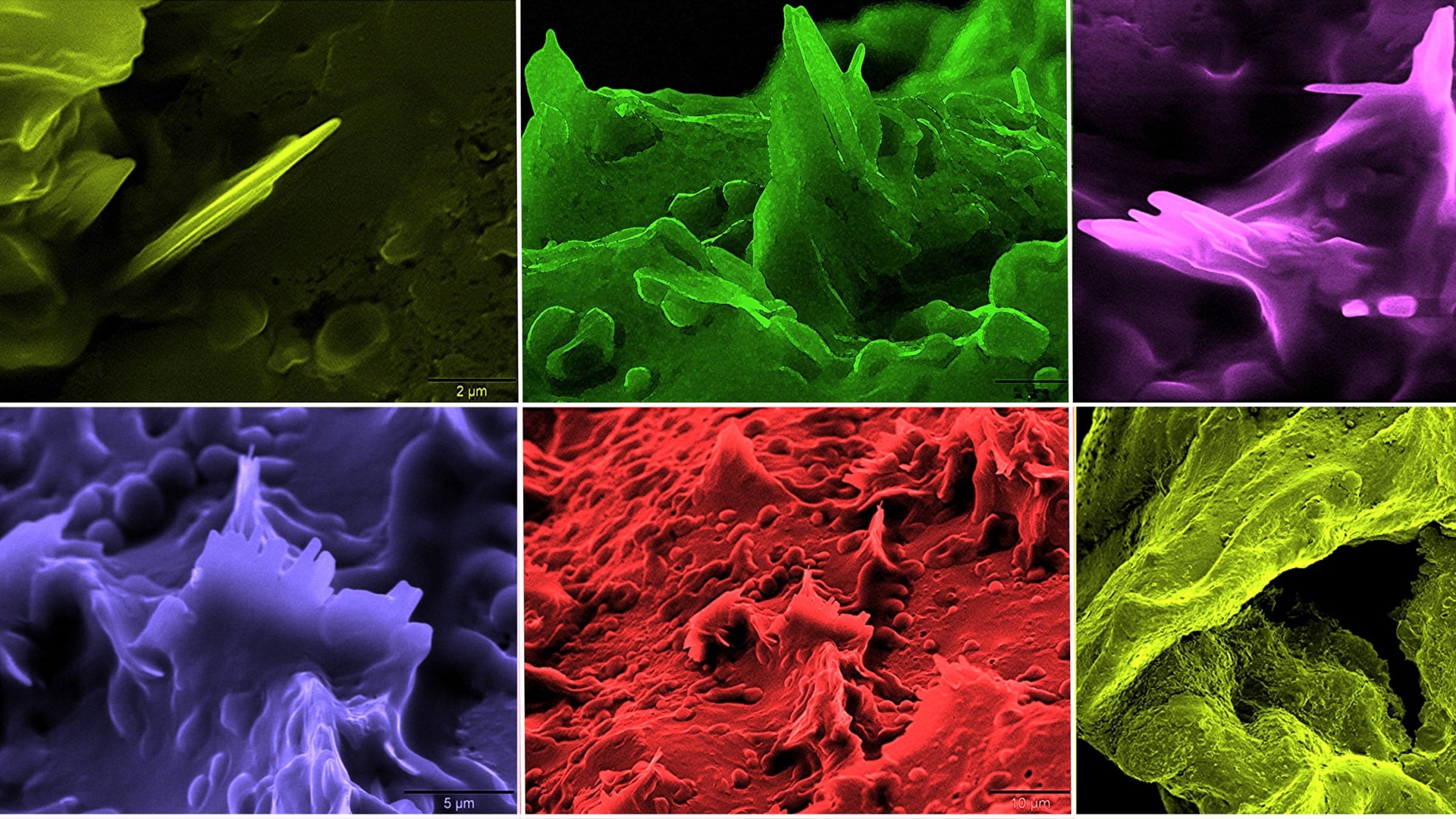
Cholesterol Crystals May Tear Through Our Artery Lining
Crystallization of cholesterol may be what causes atherosclerotic plaque rupture, the trigger for heart attacks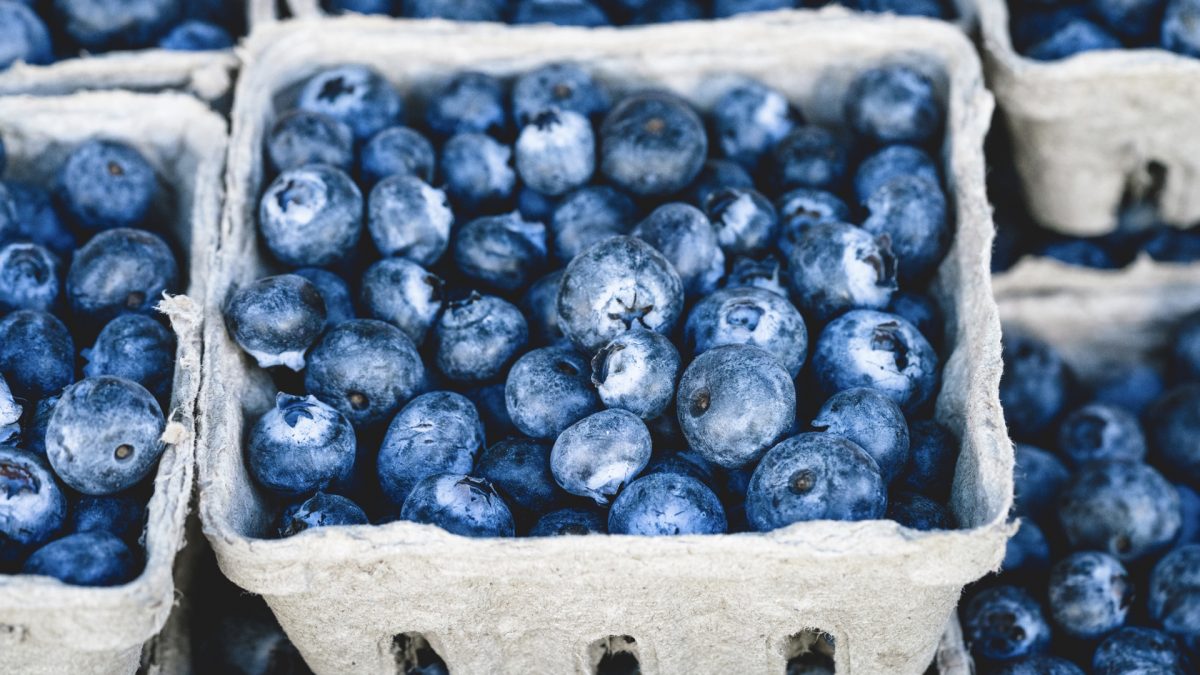
Benefits of Blueberries for Artery Function
What is the optimum dose of wild blueberries to eat at a meal?All Videos for Artery Function
-

Benefits and Side Effects of the Flu Vaccine
Randomized placebo-controlled trials show that flu shots can be extraordinary lifesavers.
-

How to Boost Your Endothelial Progenitor Cells (EPCs) for Heart Health
How can we improve the capacity of our blood vessels to repair themselves?
-

How Not To Age – Live Presentation
In this live lecture, Dr. Greger offers a sneak peek into his latest book, How Not to Age, a New York Times Best Seller.
-

How Tongue Scraping Can Affect Heart Health
Tongue scraping can boost the ability of the good bacteria in our mouth to take advantage of the nitrates in greens to improve our cardiovascular health.
-

Natural Dietary Remedy for Insomnia
Lactucin, the hypnotic component of lettuce, is put to the test in a randomized, double-blind, placebo-controlled trial of lettuce seeds.
-

Foods to Help Protect Your Arteries from Saturated Fat
If you’re going to have something unhealthy, is there anything you can eat with it to help mediate the damage it may cause?
-

Exercising to Protect Your Arteries from Fast Food
There is a window of time in which sufficient physical activity can help mediate some of the damage caused by eating an unhealthy meal.
-

Saturated Fat Causes Artery and Lung Inflammation
What happens within hours of eating a high-fat meal?
-

Do the Health Benefits of Peanut Butter Include Longevity?
Why are nuts associated with decreased mortality, but not peanut butter?
-

Does Marijuana Cause Strokes and Heart Attacks?
The temporary quintupling of heart attack risk associated with cannabis smoking may be due to the increased heartrate, blood pressure, and carbon monoxide levels.
-

The Best Diet for Weight Loss and Disease Prevention
The most effective diet for weight loss may also be the healthiest.
-

Vegetarians and Stroke Risk Factors—Vitamin B12 and Homocysteine?
Not taking B12 supplements or regularly eating B12 fortified foods may explain the higher stroke risk found among vegetarians.
-

Are Ancient Grains Healthier?
Ancient wheats like kamut are put to the test for inflammation, blood sugar, and cholesterol control.
-

Benefits of Garlic Powder for Heart Disease
See what a penny a day worth of garlic powder can do.
-

Is Alternate-Day Intermittent Fasting Safe?
Eating every other day can raise your cholesterol.
-

For Flavonoid Benefits, Don’t Peel Apples
Peeled apples are pitted head-to-head against unpeeled apples and spinach in a test of artery function.
-

Keto Diets: Muscle Growth and Bone Density
Ketogenic diets found to undermine exercise efforts and lead to muscle shrinkage and bone loss.
-

Are Keto Diets Safe?
The effects of ketogenic diets on nutrient sufficiency, gut flora, and heart disease risk.
-

Are There Benefits of Energy Drinks?
The effects of Red Bull and Monster brand energy drinks on artery function and athletic performance.
-

Does Adding Milk Block the Benefits of Coffee?
How to choose the healthiest coffee, and the effects of adding milk vs. soymilk.
-

The Effects of Avocados on Inflammation
High-fat plant foods—avocados, peanuts, and walnuts—and olive oil are put to the test.
-

Benefits of Blueberries for Artery Function
What is the optimum dose of wild blueberries to eat at a meal?
-

What About Coconuts, Coconut Milk, and Coconut Oil MCTs?
Do the medium-chain triglycerides in coconut oil and the fiber in flaked coconut counteract the negative effects on cholesterol and artery function?
-

Do the Pros of Brown Rice Outweigh the Cons of Arsenic?
Are there unique benefits to brown rice that would justify keeping it in our diet despite the arsenic content?
-

The Benefits of Açai vs. Blueberries for Artery Function
What are the effects of açai berries, cooked and raw blueberries, grapes, cocoa, green tea, and freshly squeezed orange juice on artery function?
-

The Antioxidant Effects of Açai vs. Apples
Açaí berries are touted for their antioxidant power, but does that translate into increased antioxidant capacity of your bloodstream when you eat them?
-

How to Prevent Blood Sugar & Triglyceride Spikes After Meals
Within hours of eating an unhealthy meal, we can get a spike in inflammation, crippling our artery function, thickening our blood, and causing a fight-or-flight nerve response. Thankfully, there are foods we can eat at every meal to counter this reaction.
-

Best Foods for Polycystic Ovary Syndrome (PCOS)
Which foods and cooking methods should we choose and avoid, given the role advanced glycation end products (glycotoxins) may play in polycystic ovary syndrome (PCOS)?
-

Chocolate and Stroke Risk
Dark chocolate is pitted against milk chocolate in a test of artery function.
-

Sodium and Arterial Function: A-Salting Our Endothelium
A salted meal can impair artery function within 30 minutes by suppressing a key detoxifying antioxidant enzyme in our body.
-

The Best Way to Get Vitamin D: Sun, Supplements, or Salons?
If one is going to make an evolutionary argument for what a “natural” vitamin D level may be, how about getting vitamin D in the way nature intended—that is, from the sun instead of supplements?
-

Is It Worth Switching from White Rice to Brown?
What happens when brown rice is put to the test in a randomized controlled crossover trial?
-

Can Vinegar Help with Blood Sugar Control?
Before drugs came along, the consumption of vinegar with meals was used as a folk remedy for diabetes, but it wasn’t put to the test until recently.
-

Vinegar and Artery Function
Sprinkling vinegar on greens may augment their ability to improve endothelial function.
-

Plant-Based Diets and Artery Function
The improvement of arterial function on a whole food, plant-based diet appears so pronounced that cardiac patients can achieve a 90% reduction in angina attacks.
-

Tea and Artery Function
Adding milk to tea can block its beneficial effects, potentially explaining why green tea drinkers appear better protected than consumers of black tea.
-

Olive Oil and Artery Function
Does extra virgin olive oil have the same adverse effect on arterial function as refined oils and animal fats?
-

Fatty Meals May Impair Artery Function
We finally discovered why a single high-fat meal can cause angina chest pain.
-

Turmeric Curcumin vs. Exercise for Artery Function
Those who sit most of the day and are unable to use a standing or treadmill desk, or take frequent breaks from sitting, should consider the regular ingestion of the spice turmeric to protect endothelial function.
-

Coffee and Artery Function
The new dietary guidelines for beverages recommend tea and coffee second only to water in healthfulness, but what about concerns they might impair the function of our endothelium?
